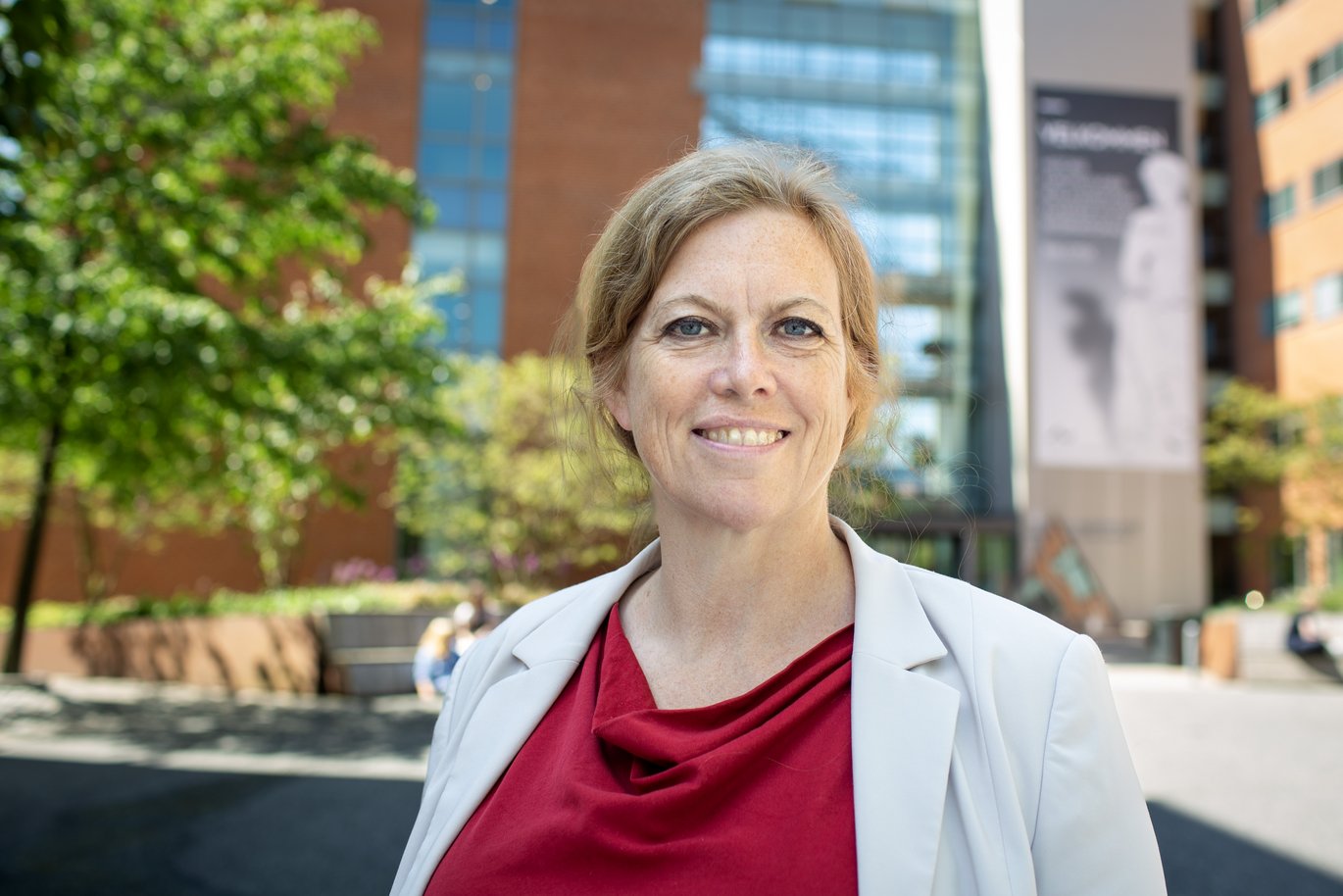COLUMN: "We shouldn’t be afraid of confrontation, but we shouldn’t be insensitive either"
Now we know how enrolment caps will be distributed across the faculties, but there are still many unanswered questions regarding how sector resizing will affect the university. Being in a workplace characterised by uncertainty and change can be challenging. Everyone reacts differently. And our work environment needs to accommodate our different approaches, writes the dean of Arts, Maja Horst, in her management column.

THE SENIOR MANAGEMENT TEAM COLUMN IN OMNIBUS
The nine members of the senior management team take it in turns to write the senior management team’s Omnibus column. The columnist chooses the topic, and all the opinions expressed in the piece are the columnist’s own.
The senior management team contributes content on the same terms as all other Omnibus authors of columns, articles or opinion pieces.
The views expressed in this column are the author’s own.
Would you like to join the debate?
- Send your content to omnibus@au.dk
The Master’s degree reform has challenged the university sector. Although we now know how enrolment caps will be distributed across AU’s five faculties, there are still many unanswered questions regarding how sector resizing will affect the university. At the individual faculties, we are now in the process of deciding what our future degree programme landscape should look like.
Being part of a workplace characterised by uncertainty and change can be challenging. Everyone reacts differently. Some people want to concentrate on their own job and responsibilities, while others want to be involved in decisions as much as possible. At the same time, we in the management team need input from staff in order to make the best decisions. This places great demands on our work environment, which has to accommodate these different approaches.
A good work environment is a support in uncertain times
A good work environment is a support in uncertain times. The Master’s degree reform gives us an opportunity to consider what kind of university we want to be. I’m in no doubt that our AU community is a central part of this vision, because it is the connections between the faculties, between research and teaching, and between our different staff teams – both academic and administrative – that make up a university in the true sense of the word. And having a strong sense of community in the workplace can also promote well-being and increase motivation.
We all handle pressure differently
We need to cultivate a work environment that allows people to handle stressful situations in their own way, and this requires something from all of us.
It reminds me of the art project ‘A Mile in My Shoes’, which is currently running in London and other places. This project invites us to develop our empathy and understanding by walking a mile in another person’s shoes, wearing headphones through which we hear their own personal story – a personalised documentary. Perhaps, for a moment, we should imagine that Aarhus University is an art installation like this, where we can practise walking in our colleagues’ shoes and putting ourselves in their place? This would certainly give us new perspectives on our professional lives, but perhaps it would also make it easier to help each other through the changes ahead.
When we overstep boundaries
It’s clear that our differences can also lead us to overstep each other’s boundaries from time to time – often entirely by accident. When this happens, it also helps to try to understand each other’s viewpoints. This enables us to realise that the other person probably didn’t have bad intentions, but it also helps us to talk about the fact that a line has been crossed. Practising empathy is not just about turning the other cheek. But I know from my own experience that it can be difficult to both say and be told that a boundary has been overstepped. I hope that we can help each other to get better at this.
I know from my own experience that it can be difficult to both say and be told that a boundary has been overstepped.
We shouldn’t be afraid of confrontation, but we shouldn’t be insensitive either – and finding a balance between these two things, in my opinion, requires us to get better at talking about the grey areas, where somebody feels that something has gone too far but others don’t completely understand why.
Trust, respect and forgiveness
In this situation, trust and forgiveness play a key role in how we treat each other. Trust is about being able to rely on each other. On the one hand, we need to trust that the managers at AU are doing the best they can to resolve the difficult situation that universities are facing. And on the other hand, managers need to trust that members of staff are doing the best they can to do a good job, even if everyone feels like they're in the middle of a storm.
There's no doubt that we need each other, and when a crisis hits, it's an opportunity to learn more about each other and thereby also about ourselves. We may not have wanted the proposals and changes we’re currently facing – either as individuals or as a university. But, in this situation, we need to practise reconciling, accepting and forgiving, so that we can continue to have a unified community. Let’s help each other maintain our inspiring and empowering work environment.
Translated by Sarah Jennings.

